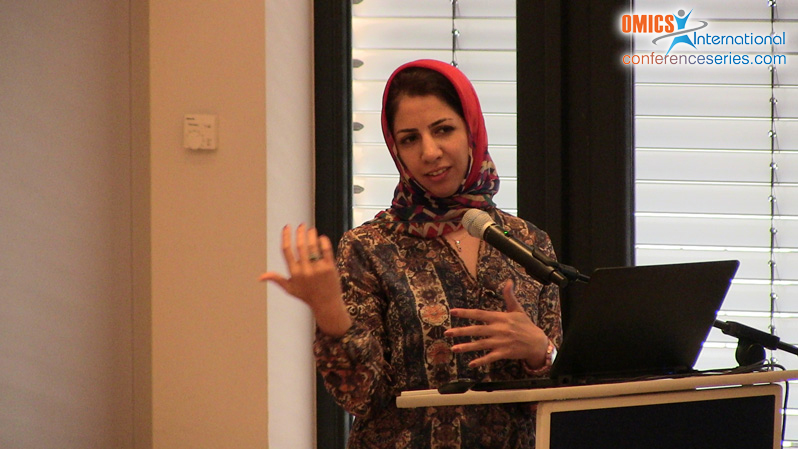
Fatemeh Nejati
Islamic Azad University, Iran
Title: Lactococcus lactis: A Bi-Functional Starter-Probiotic
Biography
Biography: Fatemeh Nejati
Abstract
Works on discovery of novel probiotic candidates are under running. Commercially, having access to a probiotic that already has industrial functionality in addition to good viability during of food processing and shelf life of product is always advantages. Few studies have been reported regarding probiotic properties of Streptococcus thermophilus strains although this species hugely used as starter culture in the production of yogurt and other dairy products. In this study, 12 isolates of S. thermophilus, that were previously isolated from home-made dairy products, were evaluated with regard to resistance to artifi cial gastric (pH 2.5 containing pepsin) and intestinal (pH 8.0 containing bile and pancreatin) juices, adherence ability to Caco-2 and HT29-MTX-E12 cell lines, hydrophobicity, resistance to antibiotics, and epithelial barrier function (transepithelial electrical resistance (TER) measurement). Although it has been generally assumed that S. thermophilus strains are not resistant to stresses induces in the GIT, the results of this study revealed that susceptibility of almost all of the tested strains to simulated gastric and intestine conditions was signifi cantly lower than for probiotic control strain L. rhamnosus GG under both simulated gastric and intestinal conditions. Regarding to adherence effi ciency to human gut epithelium cell lines, the results showed 7 and 6 out of 12 isolates exhibited signifi cantly superior adherence to Caco-2 and HT29-MTX-E12 than control probiotic L. rhamnosus GG, respectively. TER measurement showed that 3 strains were able to protect Caco-2’s tight junction. Although further investigations are necessary, our results identifi ed some of the S. thermophilus strains as probiotic candidates worth further analysis.

